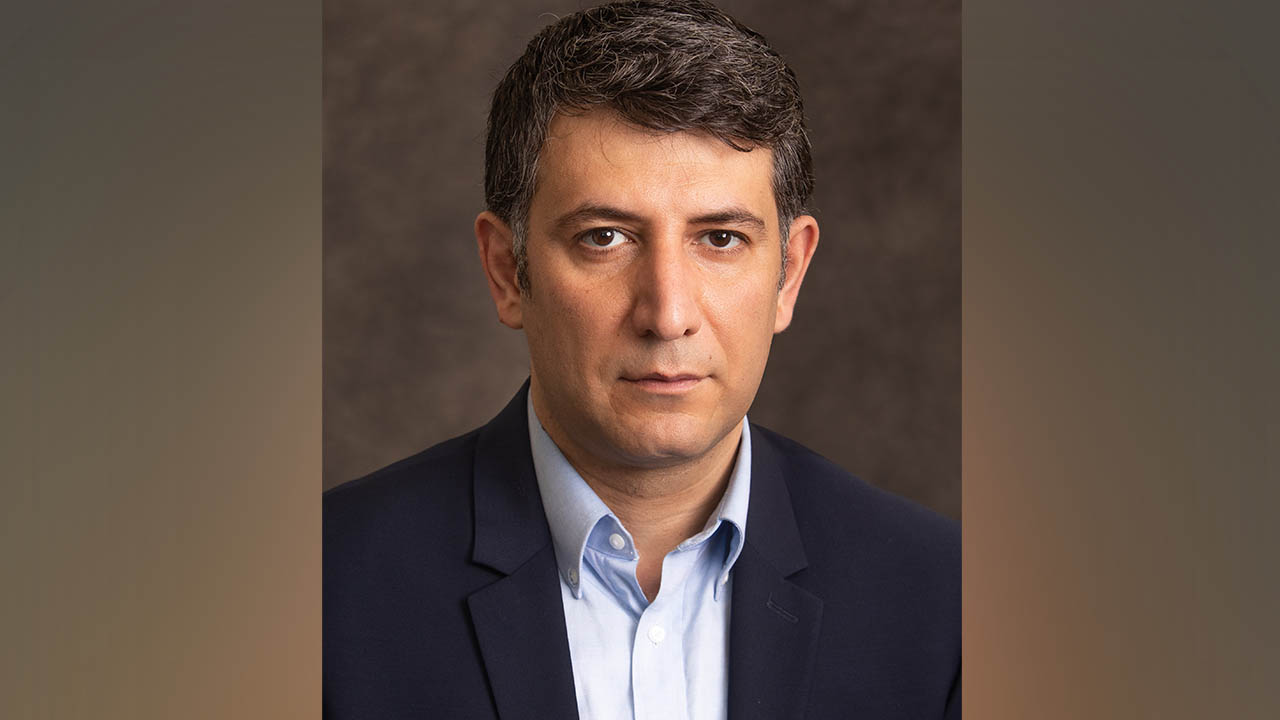
Dr. Mehdi Roopaei, assistant professor in the Department of Electrical and Computer Engineering, joined UW-Platteville in 2018. He previously taught at Azad University (Shiraz, Iran) and at the University of Texas at San Antonio. Roopaei notes UW-Platteville students bring many impressive qualities into the classroom.
“The students at UW-Platteville are so hands-on. The students I work with like to learn through hands-on experiences and begin to understand concepts on their own terms,” he said.
Roopaei has several research interests, including machine learning and artificial intelligence. He’s also in the process of developing a new course for the electrical and computer engineering program.
Outside of the university he enjoys spending time with his son and family. He also enjoys traveling to new places.
How did your interest in electrical and computer engineering begin?
When I chose to pursue a bachelor’s degree in electrical and computer engineering, nearly 20 years ago, I did not know what ECE was. I made the choice because many of the top students graduated from those programs. I was a good student and got good grades in each of my classes, however I was not sure how ECE related to me. When I went on to graduate school, I chose to pursue control engineering and became involved with many new technologies in that area. My focus was in the study of fuzzy logic and its applications to control of non-linear systems. I like thinking about the philosophy behind it; everything is not just black and white, but is instead shades of gray. Fuzzy thinking allows us to see the world without any borders.
My interest in ECE lead me to develop adaptive fuzzy sliding mode methods to control nonlinear systems and the papers I published were very influential. I presented my new control methods at several conferences and had a chance to visit with the pioneer of fuzzy logic, Dr. Lotfi Zadeh, to discuss my ideas about fuzzy control. I am going to develop a new course, Intelligent Control, for the ECE department and am excited to transfer my knowledge about fuzzy control to students.
Your research interests include machine learning, artificial intelligence, computer vision, intelligent systems, control and big data processing and cloud control. Are you currently working on any research projects?
My research currently has two directions: first, applying machine learning models at the edge, known as edge-analytics, to provide real-time processing of data generated by connected devices and sensors to make intelligent decisions. We are going to develop a platform in virtual reality (VR) domain to implement edge-analytics and improve disaster response systems.
My second research direction focuses on education and how VR and artificial intelligence (AI) can help visualization of complex concepts. Additionally, I am helping enhance coding skills of students through visualization with an educational drone in this case. Students can write lines of codes to control the drone and stream from its camera to detect objects.
A group of students are collaborating with you on the research topic of device analytics for disaster response applications. The students recently presented at Research in the Rotunda on March 11. Why is it important to give students the opportunity to conduct undergraduate research?
The main reason is to boost students’ self-confidence and help them develop something new. During this process, students gain an understanding of the research process and how scientists tackle a problem. Students also enhance their skill in the interpolation of results and gain an ability to analyze data and implement theory into practice. What do you hope students take away from your classes?
I would like for my students to gain a passion for the subject and see the attractiveness, curiosity, or happiness that can come from learning the material. As an instructor I think students should take away an eye for the big picture and an understanding of how the discipline matters in other realms. In another word, I would like for students to gain the capability to understand and analyze the behavior of phenomenon happening in daily life and learn how to control the performance of said phenomenon.
What’s the most rewarding part of your job?
I love my job, and there are several rewarding aspects. First, I like to be a part of my students’ success. I always try to develop my own skill and help to foster their growth. Second, I enjoy continuing to learn something new while at work. A job in academia gives me the opportunity to be familiar with diverse people in different cultures which stimulates my mind and helps me think in diverse ways. Additionally, being surrounded by supportive teams and knowing I am working towards the next level in my career is also rewarding.